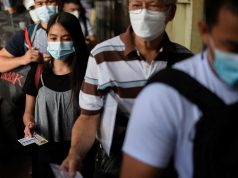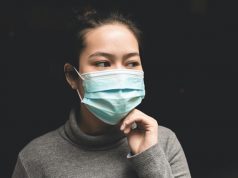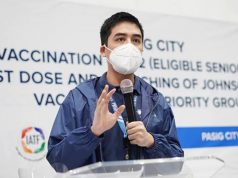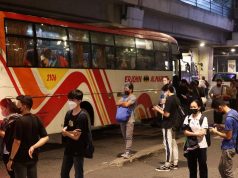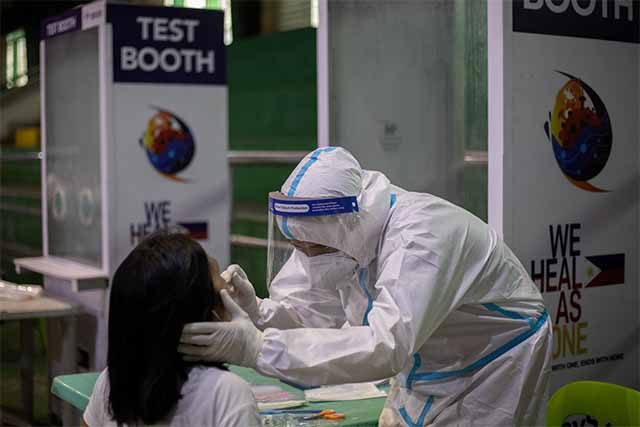
Asymptomatic individuals who are infected with COVID-19 can still infect others.
This is the main argument of experts and some concerned Filipinos over the Department of Health‘s new directive on contact tracing and testing.
At a briefing on Wednesday, January 12, health officials released an infographic of the department’s updated testing protocols where only individuals from the A1, A2 and A3 groups are required to undergo COVID-19 testing. This covers health workers, senior citizens and people with comorbidities.
They can also be administered with antigen testing when symptomatic and if the RT-PCR tests are not accessible.
Testing, meanwhile, will be optional for the rest of the public.
Rather than testing, here are the new recommendations of DOH in each situation:
- Individuals who are not exhibiting symptoms but are exposed to a positive case – quarantine as soon as possible and symptom monitoring
- Individuals who are experiencing mild symptoms – isolate as soon as possible, home care and consult via telemedicine
Health Undersecretary Maria Rosario Vergeire also said contact tracing is not a priority anymore.
She cited the wide-scale community transmission of Omicron as the reason for no longer needing to prioritize the preventive measure.
The DOH’s new policy came amid the continuous rise of COVID-19 infections in the daily tally.
As of January 14, the Philippines recorded 37,207 new cases, which bring the total to 3,129,512.
There are also 9,027 recoveries, which accumulate to a total of 2,811,188.
There are also 81 new deaths, which add up to a total of 52,815.
What were the concerns and criticisms?
Some social media users pointed out that asymptomatic cases or infected patients with no symptoms are still capable of spreading COVID-19.
“Asymptomatic close contacts are still COVID carriers!” one user said.
Some experts perceived this new directive as a form of giving up the responsibility and passing it on to households and the private sector.
“The move to shorten quarantine periods and de-prioritize contact tracing and RT-PCR testing detection all sounds to me the abandonment of transmission prevention and the transfer of responsibility from governments to individuals,” data analyst Peter Cayton said.
“We’ve come to the point of our national government explicitly telling us NOT to get tested rather than doing everything they can to boost our testing capacity,” another doctor Jeff Galban wrote.
Some users, meanwhile, viewed this as the government’s tactic to reduce the case count.
“Expect a decrease in number of cases in the next few days because of the new guidelines of DOH,” one Reddit user said.
Others expressed concern for workers whose employers are mandating them to get tested.
“Don’t test because of widespread transmission BUT your Employer wants you to show a test to prove that you are sick, otherwise, show up to work or a 10 day absence is not excusable. LOL. Kawawang mga empleyado,” one user said.
“Ang masaklap nito, alam naman nating lahat na ang mga maykaya at may kapit, magpapa-test pa rin. Kung wala kang pambayad, kung no work-no pay, tiis-tiis na lang,” another user added.
One Reddit user pointed out that reduced testing capacity will only work if the government provides test kits for everyone.
“They should push for self-test kits/rapid test antigen so anyone can monitor themselves,” the user said.
International standards haven’t changed
The World Health Organization and other experts have said that testing, tracing, isolation and treatment are the key components to suppress and resolve the health crisis.
Under its new protocols, the DOH also shortened the quarantine and isolation periods for fully vaccinated COVID-19 patients and their close contacts.
Vergeire said that they are “confident” with the benefits of vaccination against the Omicron variant of COVID-19.
“Even with increasing cases, current science on benefits of vaccination and features of Omicron variant makes us confident to shorten isolation and quarantine period, reserve testing when assessed by physician to be necessary for medical management, make testing optional when actions are the same regardless of test result,” she was quoted as saying.






